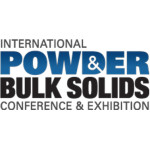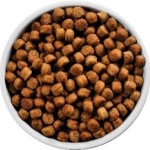![40th anniversary 2017]() Macawber Engineering Inc., in the US celebrates 40 years in business.
Macawber Engineering Inc., in the US celebrates 40 years in business.
From humble beginnings in Doncaster, England in the early 1970s and £100.00 to invest we have developed into a worldwide company with manufacturing bases not only in the US but also in the UK, India, Brazil and China. Two visionaries, Michael Crawley and Brian Snowdon, with a same dream but complimentary talents saw an opportunity in the market, joined forces and Macawber Engineering Limited in the UK was born.
With the development of our proprietary Dome Valve in the 70s and the ability to reliably control the flow of material and repeatedly provide bubble tight seal, we became the pioneers of dense-phase pneumatic conveying, testing materials in purposely built laboratory to better understand the principles of low velocity conveying while introducing and educating customers and others of the benefits this type of conveying provides compared to mechanical and dilute phase systems.
During the decades that followed Macawber Group of companies expanded to US, India, China and Brazil. All of the companies have continued to focus on dense-phase pneumatic conveying becoming highly specialist experts with the ability to convey successfully difficult to handle materials and often called to assist when other conveying methods and companies have failed.
Over the years, we have expanded our offerings and capabilities. Our largest Dome Valve® is 30”, longest distance conveyed is 2900 ft and highest conveying rate is 125 Mt/h. Our vessel sizes vary from our tiny MiniDenseveyor, just ½ ft³ to the large Denseveyor® of 125 ft³. Regardless of the application or system size our designs offer operating savings through reliability, efficiency and simplicity.
There has been glory such as being awarded the prestigious Queen’s Award for Export in the 80s and obstacles such as losing Macawber Engineering Limited in the UK after a coalminers’ strike later in the same decade halted all coal production for a year. The company was later re-established in the UK under the name Mactenn Systems Ltd. However, we have persevered and with the experiences become wiser and stronger.
We have remained family owned and a large part of our staff has been with the company 10 years or more. Some over 30 years. Our founder, Michael F. Crawley set the high standards we follow today. He was much admired for his drive, charisma, knowledge and the ability to innovate and motivate. After his passing in 2012, Maria Petsola-Crawley, who has been involved in the business for 20 years, took over as a CEO. Equipped with Mike’s passion for the business and a committed team around her, she has focused on customer satisfaction and strengthening our core competences while introducing improvements that benefit our operating efficiency.
Today, experience, expertise and product quality, is what sets us apart and what has kept us going for 40 years. In addition, we are able to offer personalized service creating lasting relationships.
As our installation base has grown, our reputation as a dense-phase pneumatic conveying specialist has spread and we now offer customer-specific conveying solutions to end-users, EPCs and OEMs throughout the world. Despite our ability to convey thousands of materials we continue to research and test materials and develop products in order to serve our customers better.
As we in the US celebrate 40 exciting years in business, we thank our customers and associates worldwide who have trusted us and with their recommendations helped us to progress and reach this important milestone. We also thank our past and current staff who have with their commitment, work and ideas contributed to our success.
![Share on Facebook Facebook]()
![Share on Google+ google_plus]()
![Share on Reddit reddit]()
![Pin it with Pinterest pinterest]()
![Share on Linkedin linkedin]()
![Share by email mail]() by
by ![feather]()






 by
by 





























